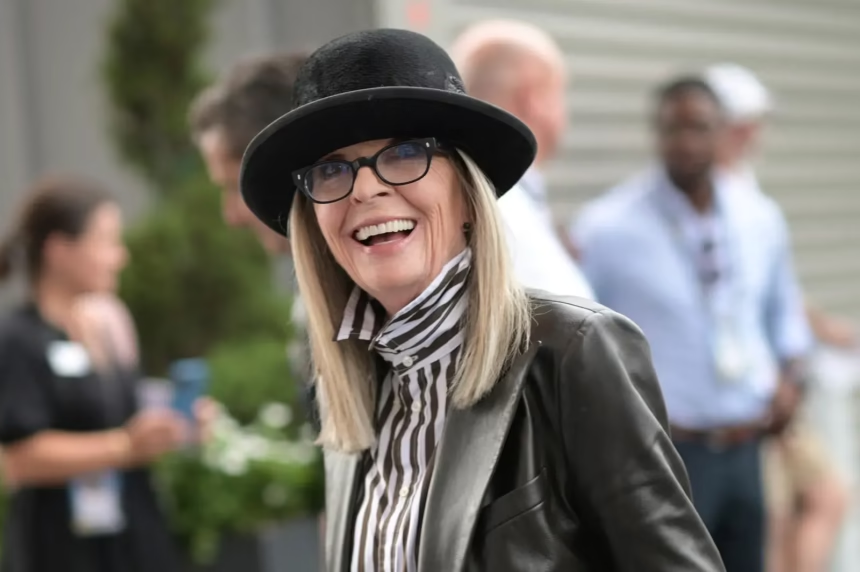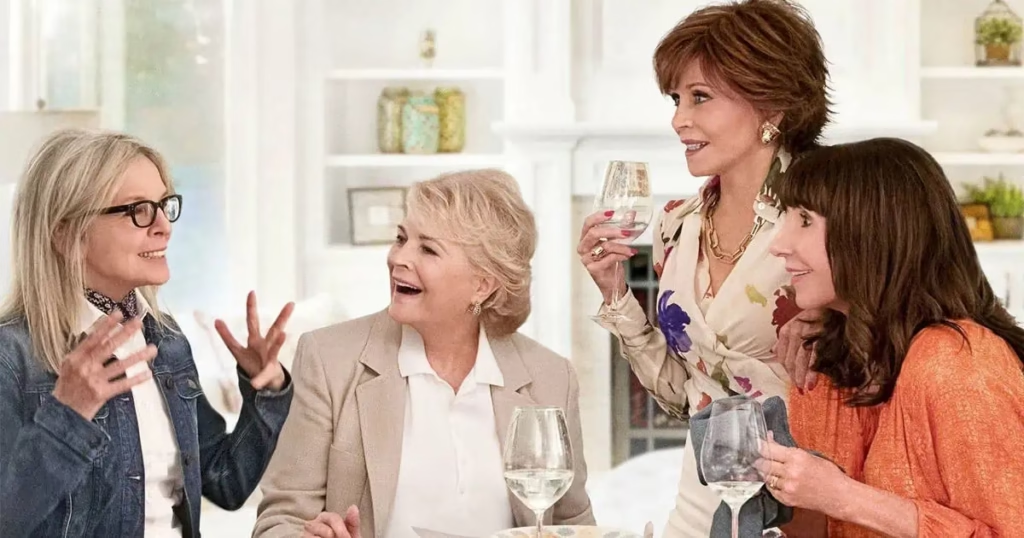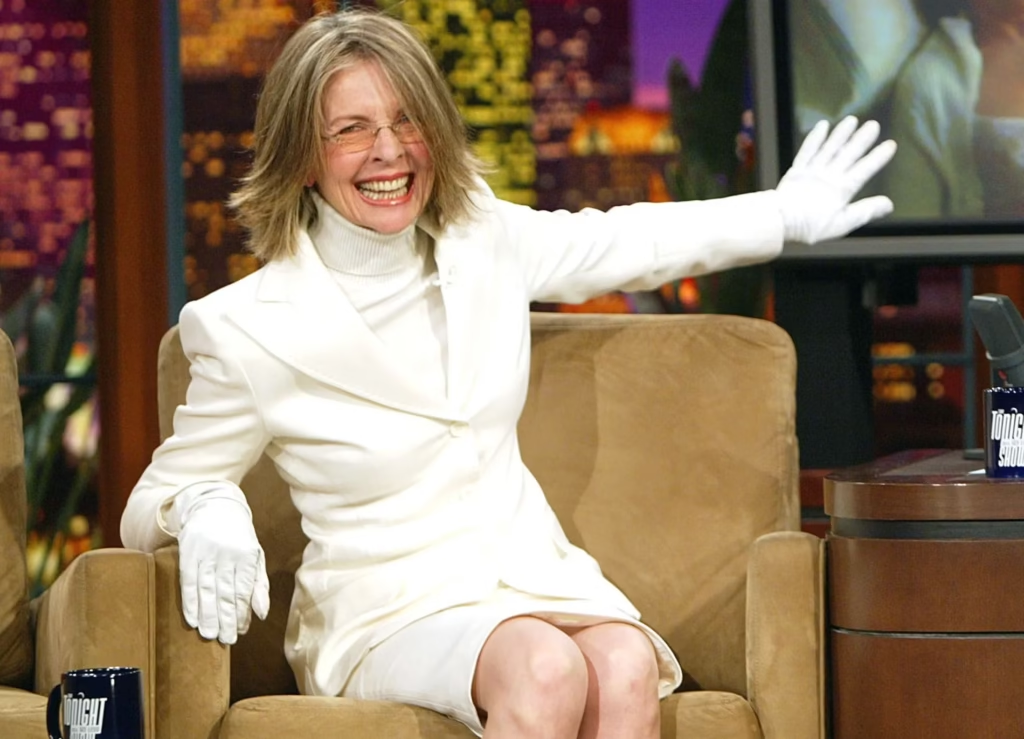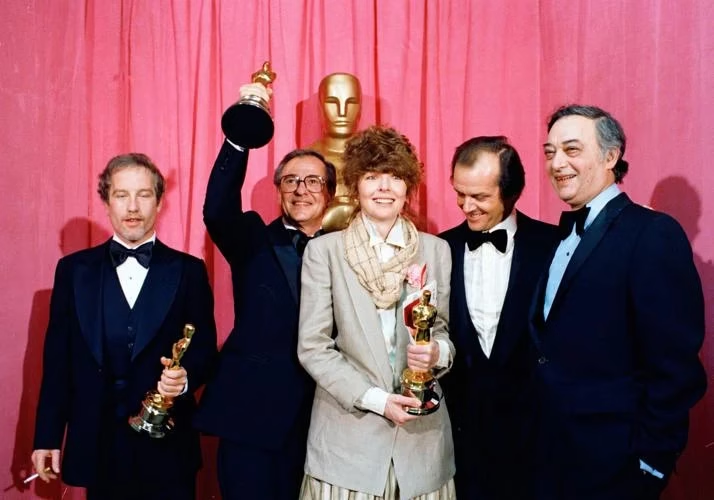LOS ANGELES — Hollywood awoke this morning to a loss that feels achingly final: Diane Keaton, the wide-eyed, menswear-clad enchantress who redefined screen charm with her Oscar-winning turn in *Annie Hall* and her quiet ferocity as Kay Adams-Corleone in Francis Ford Coppola’s mob epic, has died. She was 79.
Keaton passed away early Saturday in her beloved Los Angeles home, surrounded by the close-knit family she cherished and the golden retriever, Reggie, who often stole the spotlight in her final Instagram posts.
A family spokesperson confirmed the news to People magazine, revealing that paramedics from the Los Angeles Fire Department responded to a medical emergency call at 8:08 a.m. at Keaton’s residence.
She was transported to a nearby hospital but succumbed shortly after. No official cause of death has been disclosed, respecting the family’s request for privacy amid what sources describe as a “very sudden” decline in her health over recent months.
“Diane Keaton was a fighter, always,” one longtime friend whispered to The Hollywood Reporter off the record. “But even warriors get tired.”
The shock rippled through Tinseltown like a bad sequel no one saw coming. Keaton hadn’t graced red carpets lately—her last public sighting was a low-key August stroll in Beverly Hills, wide-brimmed hat perched jauntily as ever—but her absence felt like a plot twist, not an ending.
Insiders close to the actress, who adopted son Duke, 25, and daughter Dexter, 29, in her 50s, say she spent her final days curating her vast library of books and photos, a testament to the introspective soul who once quipped, “I have nothing to hide—except maybe my insecurities.”
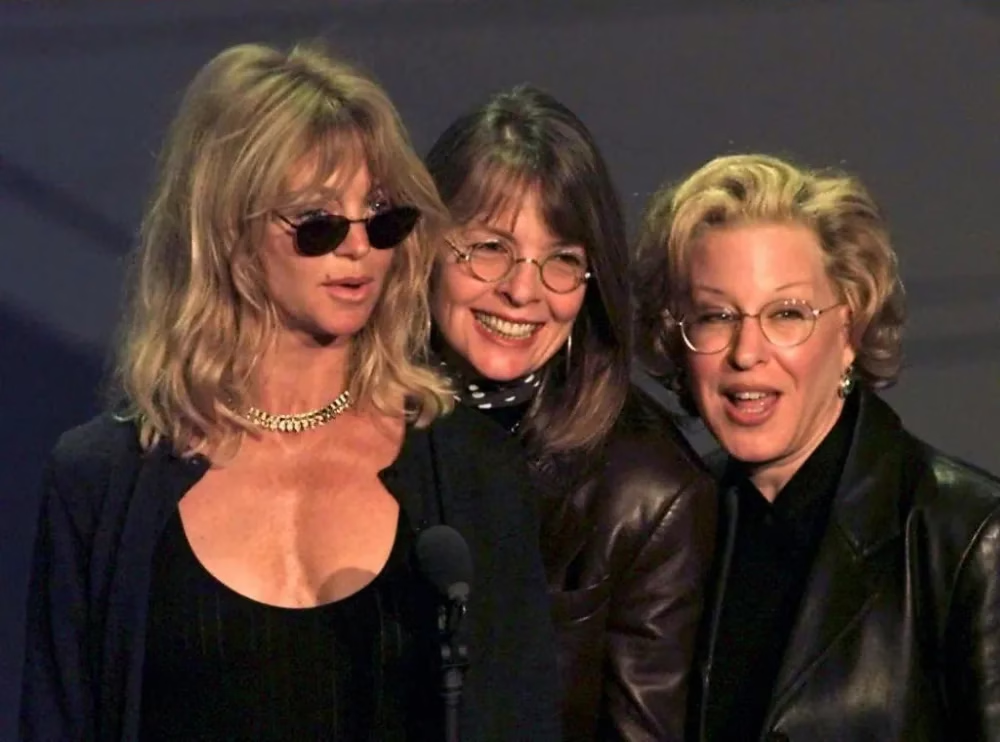
Tributes to Diane Keaton Pour Out
Tributes poured in faster than a First Wives Club revenge plot, from co-stars who became confidantes to admirers who patterned their lives after her eccentric style.
Bette Midler, Keaton’s sharp-tongued partner-in-crime in the 1996 box-office smash *The First Wives Club*, posted an Instagram reel of their on-set hijinks, captioning it: “The brilliant, beautiful, extraordinary Diane Keaton has died. I cannot tell you how unbearably sad this makes me.
She was hilarious and completely without guile, or any of the competitiveness one would expect from such a star. What you saw was who she was… oh, la, la!” Midler, voice cracking in a follow-up video, added, “We laughed until we cried—literally. Diane didn’t just steal scenes; she gifted them to you.”
Jane Fonda, who shared silver-screen sisterhood with Keaton in the *Book Club* franchise, shared a black-and-white photo of the pair giggling over martinis. “It’s hard to believe… or accept… that Diane has passed,” Fonda wrote.
“Diane Keaton was always a spark of life and light, constantly giggling at her own foibles, being limitlessly creative in her acting, her wardrobe, her books, her friends, her homes, her library, her worldview.
Unique is what she was. And, though she didn’t know it or wouldn’t admit it, man, she was a fine actress!” Fonda’s words echo a bond forged in late-career levity, where Keaton’s wide-eyed wonder met Fonda’s steely grace.
Diane Keaton Was Magic
Mary Steenburgen, another *Book Club* alum, told *Deadline* in a heartfelt statement: “Diane was magic. There was no one, nor will there ever be, anyone like her. I loved her and felt blessed to be her friend. My love to her family.
What a wonder she was.” Robert De Niro, whose brooding intensity clashed so memorably with Keaton’s vulnerability in *The Godfather Part II* (1974), kept it simple yet shattering: “I am very sad to hear of Diane’s passing. She brought such heart to everything.” Steve Martin, who directed her in the heartfelt *Father of the Bride* (1991), remembered her as “the ultimate collaborator—funny, fearless, and forever fumbling in the best way.”
Even younger stars, weaned on Keaton’s rom-com renaissance, chimed in with raw reverence. Mandy Moore, who played her daughter in 2007’s *Because I Said So*, posted a throwback set photo: “They say don’t meet your heroes, but I got to work with one of mine and even call her ‘mom’ for a few months. Diane, you were magic.
Thank you for showing me how to lead with heart.” Ben Stiller, a self-professed “huge fan,” tweeted: “Diane Keaton. One of the greatest film actors ever. An icon of style, humor, and comedy. Brilliant.” And Nancy Sinatra, idol turned mourner, confessed on X: “I adored her—idolized her.
She was a very special person and an incredibly gifted actor who made each of her roles unforgettable. Her light will continue to shine through the art she leaves behind. Godspeed, Diane.”
Diane Lived Life on Her Own Terms
Diane Keaton’s family, ever private, issued a brief statement through their spokesperson: “Diane lived life on her terms—boldly, beautifully, and with unshakeable authenticity. She leaves a legacy of love in her children, her art, and the countless lives she touched.
We ask for space to grieve this profound loss.” Sources say Duke and Dexter, both adopted as infants, were her anchors in later years, often joining her for quiet hikes or impassioned debates over Dorothy’s journals—Keaton’s mother, whose Alzheimer’s battle inspired her memoir *Then Again* (2011).
Born Diane Hall on Jan. 5, 1946, in Los Angeles to a civil engineer father and homemaker mother (whose maiden name she borrowed for the stage to avoid confusion with another Diane Hall), Keaton was a Neighborhood Playhouse alum whose Broadway debut in *Hair* (1968) hinted at the free spirit she’d become.
But it was Woody Allen’s *Play It Again, Sam* (1969) that ignited her fire—a Tony-nominated turn that blossomed into a real-life romance and eight on-screen pairings, from the slapstick *Sleeper* (1973) to the existential *Manhattan* (1979).
Best Actress for Annie Hall
Diane Keaton’s accolades form a glittering timeline of a career that danced between comedy and pathos, stage and screen, over six decades. The crown jewel: Academy Award for Best Actress for *Annie Hall* (1977), where she embodied the neurotic New Yorker with lobsters and laundry lists, snagging also a Golden Globe for Best Actress in a Musical or Comedy and a BAFTA for Best Actress.
Nominations followed like eager suitors—another Oscar nod for *Reds* (1981) as journalist Louise Bryant opposite Warren Beatty; a third for *Marvin’s Room* (1996), her raw portrayal of a leukemia-stricken sister earning raves alongside Meryl Streep; and a fourth for *Something’s Gotta Give* (2003), where she wooed Jack Nicholson with wit and white linens.
Golden Globes doubled down: a second win for *Something’s Gotta Give*, plus noms for *The Family Stone* (2005) and TV’s *Amelia Earhart: The Final Flight* (1994), which also netted Emmy and SAG nods.
A Tony nom for *Play It Again, Sam*, two BAFTA noms (*Manhattan*, *Reds*), and lifetime honors like the AFI Life Achievement Award (2017) and Film Society of Lincoln Center Gala Tribute (2007) cemented her as more than an actress—a director (*Unstrung Heroes*, 1995), producer, and style maven whose Annie Hall menswear influenced generations.
Diane Keaton’s off-screen battles added depth to her dazzle. She battled bulimia in her youth, consuming up to 20,000 calories a day before purging, a struggle she detailed candidly in *Then Again*.
Skin cancer diagnoses in later years prompted sunscreen PSAs, her trademark humor intact: “I finally started protecting my skin—after frying it like bacon.” Yet she never dimmed; adopting her kids at 50, she quipped, “Motherhood? It’s the role I was born for, just arrived late.”
As Hollywood pauses—cancels premieres, dims the Dolby Theatre marquee—Keaton’s spirit lingers in every quirky heroine who dares to be unapologetically herself. “La-di-da,” she’d say, flipping off convention. In a town of sequels, her story ends on her terms: singular, sparkling, eternal. Rest easy, Diane. The city’s a little less colorful without you.
Trending News:
How to Score a Prime Video Subscription Discount in 2025
Andrew Lloyd Webber’s The Phantom of the Opera Returns to Bangkok




